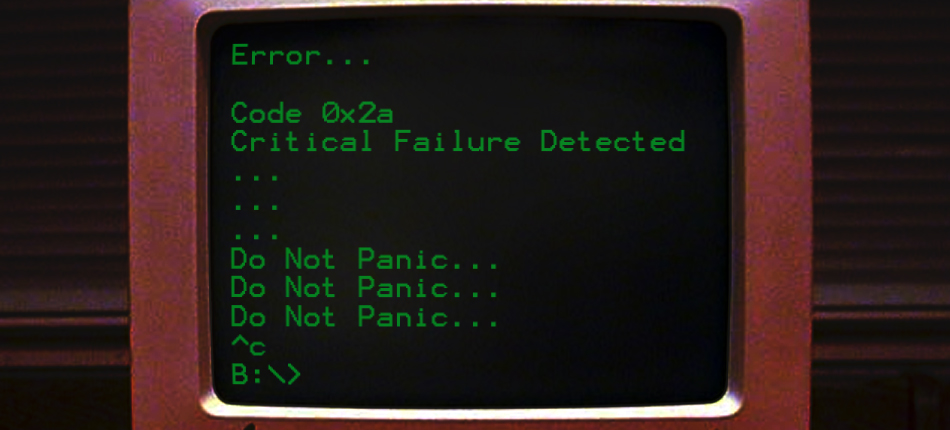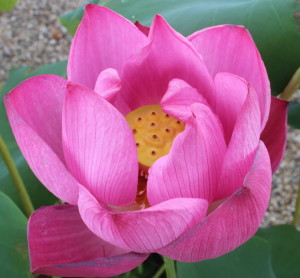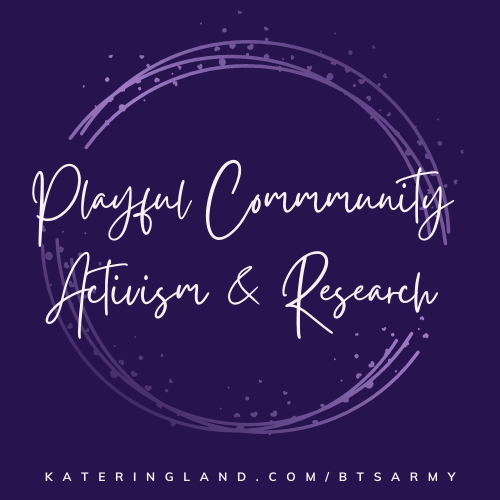I’m happy to announce that I will be the opening keynote at the Education in Games Summit this year in Melbourne, Australia, October 14. This summit is for school teachers to learn more about using games in their education practices. I’ll be talking about my Autcraft research, as well as speaking more broadly about how we can use games in inclusive education.
Tag: travel (Page 1 of 2)
This is a continuation of my series of blogs recapping CHI 2019. You can catch up with the first blog, if you missed it, and the second blog on self-care at conferences, and the third blog on the social impact of our research. In this final blog of my CHI 2019 series, I wanted to answer a Frequently Asked Question: “How are you managing being at CHI with kids?”
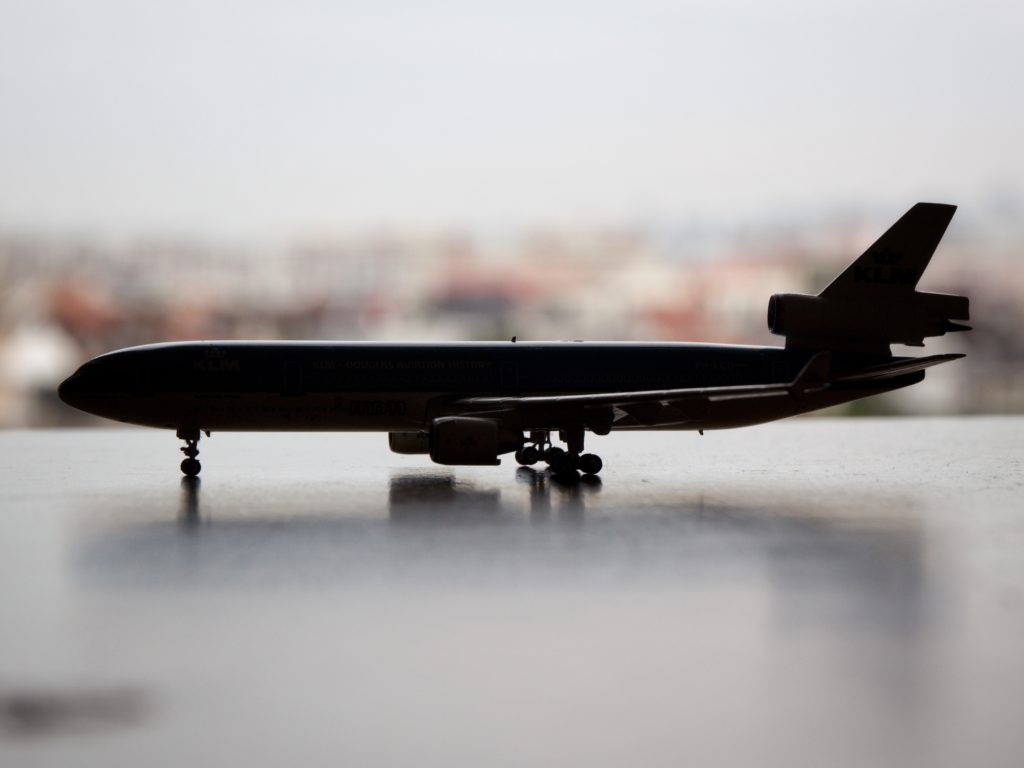
The short answer: Not easily. It’s hard. It’s expensive. I have to make tough choices.
The longer answer: I was fortunate enough to be one of the inaugural postdocs to get a grant from Northwestern that helped cover the cost of my mother’s plane ticket. This grant was to help postdocs who have dependents still attend conferences. It’s meant to cover costs such as a caregiver at home or for a child or caregiver to travel with. My daughter is still nursing and has never taken a bottle, no matter how much convincing we try to do. So, we made the choice that she comes with me on my overnight trips until she’s ready to not do that anymore.
What does this mean, really? That every time I want to travel, my daughter comes with. But if I am presenting or trying to network, I’m also looking for childcare. It’s difficult to be watching a running toddler while networking at cocktail hours or staying out late at dinners or after-dinner drinks. So, for a long international trip like CHI in Glasgow, I bring my mother who gets to spend time with her granddaughter while I’m off networking, going to workshops, and giving presentations. I will be real and tell you that this wasn’t an ideal set-up, but compared to the wrangling and horrible experiences of going to onsite job interviews with her as a 5 month old, CHI looked like cake.
I’ve learned to make tough choices. Do I go to this dinner or an afternoon session? Do I skip the morning in order to be able to stay out later that night? Do I bring the toddler to the poster session in order to give my mother a break? Much like other people who have accessibility issues or other needs, I have to prioritize what is most important to get out of a conference and not feel guilty or like I missed out on all the rest. And this is above and beyond the fact that I do have my own set of physical needs and accessibility issues. I learned very early on in my PhD that taking care of myself was the most important part and then prioritizing everything else after that.
I’ve also come to rely on the support not just of my own family, but of the wider network of Academic Mamas. I’m part of a large Facebook group, and many smaller groups as well. These women have really helped me figure out how to navigate the sometimes challenging and strange waters that is academic life.
My daughter is going to be done nursing soon. There will be a time, probably in the not so distant future, that I will miss these moments I got to spend with my children while they were young. While doing my research well and hopefully getting a job this coming year are important to me, I do have to stop and recognize that these moments will not be here forever.

And I also would like to take this moment to recognize that this is very hard. Being a full time postdoc, going on the academic job market again, and being a mom to two young children is supremely challenging. I relish the challenge. But I want to say to other Academic Moms who might be reading this: I see you. This is hard work. Take a moment to appreciate yourself and all that you do for your little ones.
This is a continuation of my series of blogs recapping CHI 2019. You can catch up with the first blog, if you missed it. For this week’s blog, I am focusing on the importance of care. This takes many forms, but for this short blog, I’ll be honing in on self-care and community care. Both of these are about taking care of the individual, but one (self-care) implies the individual is taking care of themselves and the other (community care) implies that the group as a whole is making space and watching out for the individuals.
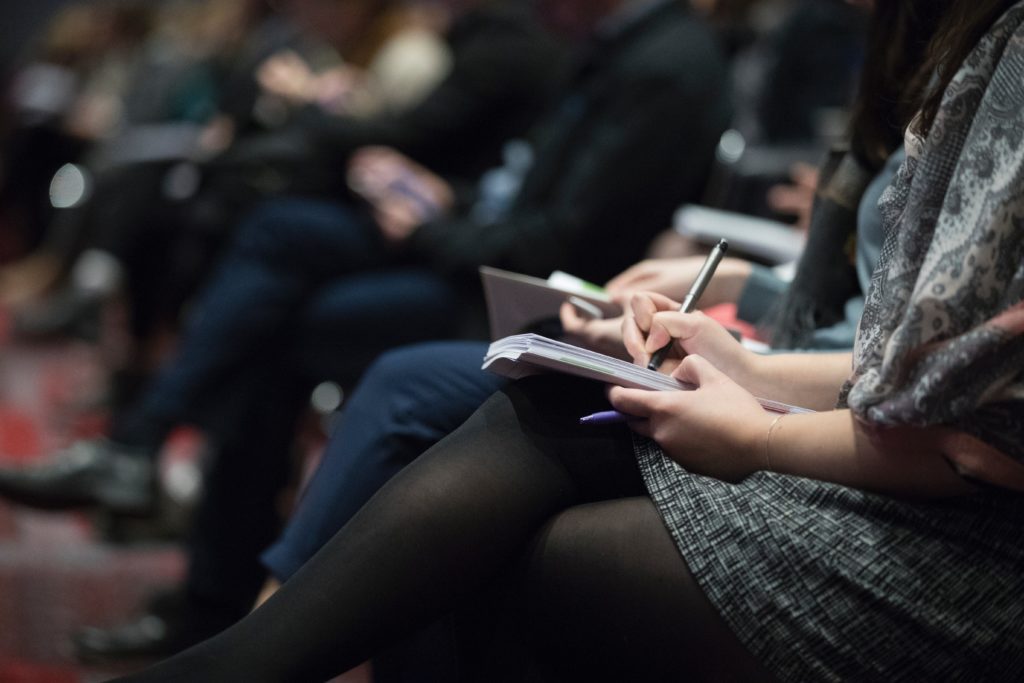
Self-Care
Conferences are hard. They are taxing on the body both physically and emotionally. CHI 2019 took place in Glasgow, Scotland. This means that many of the community experienced some kind of jet lag. And this is the case for every conference. Some people will be experiencing jet lag and the other effects of having to travel long distances. Then when you get to the conference, there are thousands of people. Rooms are crowded, halls are noisy, many people are consuming alcohol at evening functions. Through all of this, early career scholars are expected to show up, be engaging, and network like mad. Conferences are hard.
My advisor, Gillian Hayes, gave the best advice before my first conference. It’s okay to not go to every session. It’s okay to skip certain events. Quality over quantity. Take care of yourself. Save your energy for those key interactions that you need to further your career, your research, or your learning. As is the case with all of academia, learn to say no to things. To that end, I’ve learned that I would rather save a bit more money at home in order to be able to stay at a hotel closer to the conference or to be able to order in room service for a night when I just can’t face going out to eat one more time. I realize that that is steeped in privilege. Conferences are not only hard, but they are expensive – CHI especially so. My only rationale is that my moments at CHI, having quality interactions with people, will help further my career in incalculable ways. I’m banking on it, and whether this will actually pay off in a tenure track job in the long run remains to be seen.

In summary: Take care of yourself before, during, and after a big (or small) conference. Listen to your body. Focus on quality interactions over quantity.
Bonus tip for students: Make a list of 5-10 people you would really like to meet or touch-base with while at the conference. Focus on that list and make those your quality interactions. You’ll thank your tired self later.
Community Care
This one is a little trickier. As I’ve said, conferences are hard. We can all help make each other’s conference experience better. I will get into the larger, organizational issues of these big conferences like CHI in my next blog post, but for now I will focus on the community-on-the-ground. This could be simple things like, if you’re chatting with people, try to get out of the way so you can all hear each other and you aren’t in the way of those trying to get through. Maybe this looks like simply not guilting people into going to the late parties or finding safe spaces for women and other marginalized community members. This also means accepting help when others offer it (an important part of self-care!). I’ve seen a lot of positive movement in this area, especially at CHI. But, of course, there is always room for improvement and we should strive to find ways to help each other out.
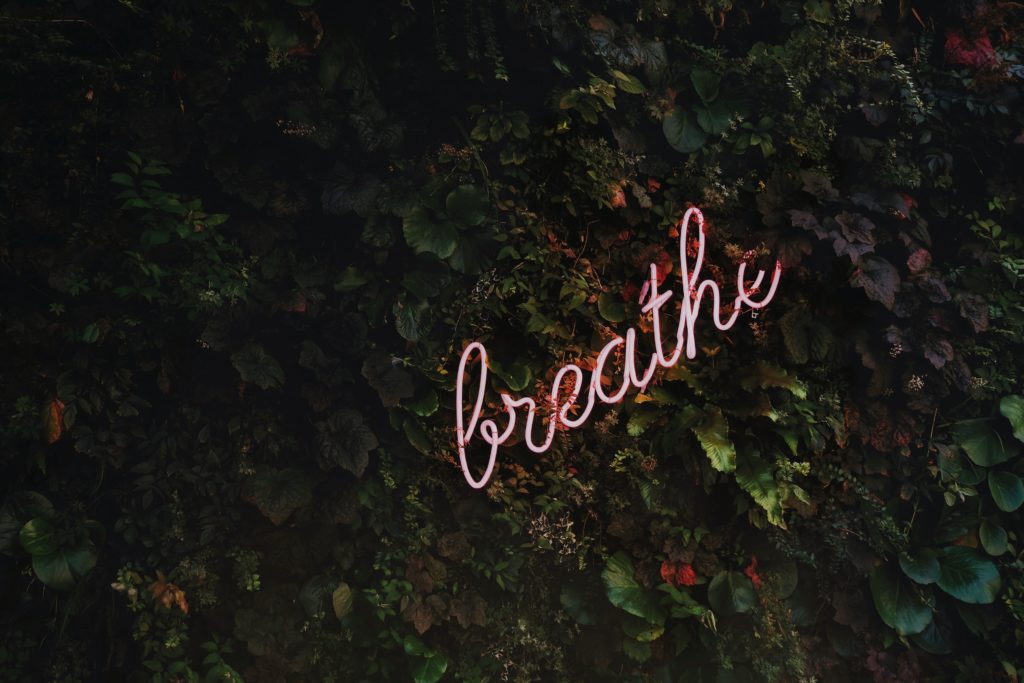
CHI can be a wonderful experience if done right. I have had conference experiences where I’ve just felt ill the entire time and ended up not getting much out of it. I then I have to ask myself why I spent money to even go in the first place (because let’s be real, as a student or postdoc, you’re losing money even if you’re getting reimbursed). But I’m happy to say that prioritizing my own self-care and looking out for others has really improved my overall CHI experience. I hope these tips are helpful for you as you plan your next conference trip!
I have been getting questions about the EAPSI application process, so I thought I would save everyone some time and write a quick blog post about my experience. I will probably update this as needed (when I think of new things or someone asks me a new question).
Firstly, for those who don’t know what EAPSI is, it is a summer internship opportunity that is funded through the NSF that gives student researchers a chance to conduct research in various Asian/Pacific countries. As an EAPSI 2014 Fellow, I was able to spend 10 weeks in Hiroshima, Japan conducting research at the university there. NSF has a lot of really great information on their website, which I highly encourage you to read through if you are thinking about applying.
As a caveat, my experiences are particular to the Japan EAPSI fellowship. Each country has a different relationship with NSF, differing numbers in terms of applicants they will take, etc. For instance, it is a fact that the countries where the primary language spoken is English have a much lower acceptance rate. The non-English speaking countries, like Japan, have much higher acceptance rate (I heard the number 40% floating around, but can’t verify that).
Now, I’ll present my advice as someone who had their fellowship application accepted.
- You have to have a good idea of who you will be working with in the country of your choice. In face, you will not get accepted as a fellow without a letter of support from that person. What I did for Japan is searches on the web for anyone who might be related to my area. When I didn’t hear back from anyone, I had my advisor send some emails. In the end, I found someone who was not directly in my field, but he was someone who could use my expertise (as someone who can built and evaluate tech). We emailed back and forth several times, while I worked out a potential summer study plan*. SAVE all these emails and attach them to your application. NSF wants proof that you have a working relationship of some kind with your potential host.
- You don’t need international experience, so don’t stress it. It’s more important that for your application that you have a relationship with your potential host researcher (see #1). You also don’t need to be able to speak the language of your country of interest. NSF is more interested in sparking collaboration and giving students a new opportunity.
- Have very clear Intellectual Merit and Broader Impacts categories in your application. If you have applied for the GRFP, then you know how important these categories are. Make sure you have lots of both.
- It needs to be clear that you know how to plan a research project that will take place in the allotted time. You only have 8 or 10 weeks, depending on which country you go to. That’s not very much time at all. Be able to articulate the work you will do leading up to the summer and how you will possibly extend your work (and your new international collaboration) into the future after the summer has finished.
- Look through the slides and handbooks from the NSF EAPSI website. These were super informative for me when I was writing my proposal and application.
Here are the quotes from my IM and BI categories of my proposal:
“Intellectual Merit. The intellectual merit of this project includes an examination of how designing assistive technology can occur in a cross-cultural practice, particularly between Japanese and American researchers. This project will also result in a prototype of an Augmentative and Alternative Communication (AAC) device for Japanese speaking users. In addition, the work from this project will contribute to the development of a framework to facilitate cross-cultural design of assistive technology. I plan on disseminating the results of my proposed work through academic publication at conferences, such as CHI and UBICOMP, and relevant academic journals.
Broader Impacts. This project will ultimately benefit children with ASD, their caregivers, and with which peers they interact. The project will strengthen international ties between USA and Japan as I collaborate with researchers from Hiroshima University. This project will allow me, as an underrepresented student, to gain experience researching internationally. I intend to share this work and experience at conferences, such as the Grace Hopper Celebration of Women in Computing and the Richard Tapia Celebration of Diversity in Computing, aimed at underrepresented students in both graduate and undergraduate school. This will bring awareness of my work to underrepresented groups in computing fields and help draw more women, minority, and students with disabilities to graduate school. I will also keep a blog during my experience in Japan on my personal website. As part of my studies at UCI, I plan to continue to mentor undergraduate students and to continue to develop technologies that can be used to assist children with disabilities.”
*In truth, this plan did not really end up happening due to a lot of different things, which is totally okay and normal. We still did some amazing research.
Additional questions can be left as comments here or emailed to me at kringlan [at] uci [dot] edu.
Hope this was helpful!
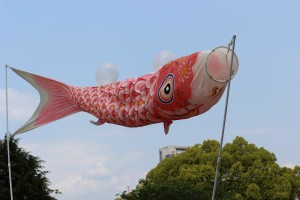
At the Hiroshima Flower Festival 2013. Photo Credit: Severn Ringland.
In the fall of 2013, I applied for the NSF’s East Asia Summer Institute Program and was accepted February 3, 2014. The abstract to my proposal:
While there are a variety of available Augmentative and Alternative Communication (AAC) devices available for individuals with Autism Spectrum Disorder in the United States, these devices are infrequently found for users in Japan especially in their native language. A culturally appropriate AAC system for use with Japanese children will be designed using participatory design workshops with stakeholders from Hiroshima University. During this project she will come to better understand the process of designing assistive technology as it occurs between local stakeholders in Japan and American researchers and to create a framework to help facilitate this kind of work in the future.
Click here for a full version of my proposal.
Last Updated: April 3, 2014
Related Posts:
EAPSI Alum Advice for Applicants
Video: Development of EAPSI Project App Part 1
Video: Design of EAPSI Project App
Hello! Here’s just a quick update from me. The first 6 months of my graduate school experience has just flown by. I’m now in my second week of winter quarter. Phew!
First, I want to just make an observation about my experience so far before I get into the news segment of this post. I have had moments of sheer anxiety and insecurity, but those seem to be balanced out with moments of happy triumph. An email I received recently really sums up why there is this oscillation of confidence. The contents of the email were along the lines of “You have a really awesome idea, I’m impressed with you. Why aren’t you talking more in class? You should sit in the front row.” And this is what grad school is all about: small moments of celebration followed by many moments of pushing you to the next level. I’m learning to treasure my little celebrations and embrace all the criticism because it’s going to make me a much stronger person in the long run.
Talking more in class discussion? I’ll save that subject for a different blog post.
Onto the news!
My team submitted a project to the iConference Social Media Expo competition and made it to the final round. We will be flying to Berlin the first week of March to present our work. My favorite part of the project was editing together the video for it. You can see the video and read our abstract on my portfolio page.
I also presented my poster at ASSETS 2013 in October for work I did on the Clothing Tagging Systems for the Visually Impaired. While I probably won’t be doing further work on this project, I got a lot of valuable feedback. The experience I gained from this project has influenced much of the work I am currently doing and will be doing in the future.
I have a couple more projects in the works that I’m excited to share with everyone when they are a little further along. Stay tuned!
Today I slept in and woke up in time to attend the Student Research Competition presentations. They were very good and gave me some good insight into how I should think about my own future presentations.
I then ate lunch from the grocery store at the bottom of the convention center. It is Labor Day and many of the restaurants are closed, along with most of the shops as well. Yesterday, Amy gave me some really great advice about how to choose sessions. So I looked over the schedule and tried to be more deliberate about the sessions I was choosing.
After lunch I attended two sessions. The first was on Mental Health. I really liked all of the papers presented there. These included a discussion about personhood in dementia, using a mobile app to track elements in Bipolar Disorder, supporting caregivers of patients with depression, and objects to help with Dialectical Behavioral Training for those with Borderline Personality Disorder. The first paper had interesting insights about the sense of self. People often talk about it as if it is something you can lose, but perhaps it is better to think of it as something that can be externalized by the people around you. The app for Bipolar Disorder was interesting, of course, because of my closeness to that particular topic. The paper about depression was interesting because the study was conducted in Japan. There caregivers are reluctant to tell their close friends and family about their loved one suffering from depression. I wonder if the same would be true in the US. And finally, the paper on DBT was great because it is another topic dear to my heart. The researchers actually created physical objects to help patients understand and go through their DBT training. For instance, they created a crystal ball that pulses with the heartbeat of whoever is holding it. The ball can be personalized by embedding meaningful objects into the crystal. The user can hold this ball while doing their mindfulness exercises. It’s really fantastic and I would love to have one of my own!
The second session I attended was Design for Children. These papers were also very good. I learned a lot about how researchers can use children in the design process (for things that will ultimately be used by children). I got a good glimpse of the idea of Participatory Design, which I hadn’t really formally encountered before.
After the sessions I walked back to the hotel in a torrential downpour. Seems like a good evening to stay in a take it easy. I am on vacation in Paris, after all!
Today was day 2 of CHI for me. It was a long, but wonderful day. I started by attending the CHI Women’s Breakfast. The food was very good and we got some very cool swag from Google, Microsoft, and Facebook. I met a table full of very interesting people including Bonnie John and Arnie Lund. While I was not very happy with the logistics of the breakfast (the organizers tried to direct our conversation, which ended up just making the conversation more stilted and less about what I would have liked to talk about). We still ended up running over into the first morning session.
During the first break I was supposed to talk to people about my poster. Unfortunately, my poster did not get put up after the judging session. I am sad to know I will probably not get it back because a lot of hard work was put into that poster and I was hoping to hold onto it.
My favorite paper for the morning was Analyzing User-Generated YouTube Videos to Understand Touchscreen Use by People with Motor Impairments by Lisa Anthony et al. This was another study that looked at a specific set of videos found by searching on YouTube. I learned about how valuable user generated content on the internet can be as a source of information about a group of people.
Then I went to lunch with my UMBC family. It is really nice to be able to spend time with some people here that are friendly, familiar faces. CHI is so large that it can be quite overwhelming at times. After lunch, I spent some time with Amy and Lisa. They both gave me a lot of really excellent advice about my upcoming transition to grad school. It was nice to get some insight into my journey ahead and also to know that there are safe people I can turn to for advice if I need it. It’s these connections to a support network that will ultimately be the most important thing I foster as a grad student, I think.
In the afternoon session, I especially liked the paper entitled Technology Preferences and Routines for Sharing Health Information during the Treatment of Chronic Illness by Carolyn Pang et al. This was a study of how families with an individual with chronic illness uses different technologies to connect with each other for comfort. This was probably one of my top favorite papers thus far, it’s up there with the Motherhood paper from yesterday.
I then spent about five minutes at the hospitality reception at the convention center. It was way too crowded with not enough to drink, eat, and do. I met up with a bunch of people later to attend the joint UW, U of Michigan, and Georgia Tech party. I met a couple of people that I was happy to meet. Otherwise it was another loud, crowded place with not enough to drink and eat.
I’m happy for all the connections I am making here at the conferences. I feel like I can start this summer of research at UCI strong now. But first! Two more days of CHI!!
Did you miss Part 3?
March 2013: UC Irvine Visit and THE Decision
After leaving Boulder and hearing what students there had to say about their school, I was more inclined to accept Irvine’s offer. I wasn’t going to say with 100% certainty until I had visited the school and made sure I clicked with the people there, but based on the research that was happening and what I heard from others, Irvine was the way to go.
It did not take me long to feel like my initial instincts were correct. I got off the plane and already felt like I had come home. Now, I had to be cautious, because in a lot of respects, I had come home. I spent the first 12 years of my life in Southern California. I had decided that Kyle, my husband, needed to come with me on this visit. If this was going to be our home for the next 5+ years, I wanted to make sure it was going to work for him. He was not as impressed at first as I was. I knew what he meant about it not being “green”. The Pacific Northwest is definitely a lot greener, but I think that’s probably not the best reason to turn down a grad school offer. J I also have to say the women huddled around the hot chicken case at the Whole Foods because it was under 70 degrees outside was extremely humorous.
When I checked us into the hotel, I was given a “goodie” bag with snacks and a folder full of information about the school and department. I think the snacks were a really great touch, even though I couldn’t eat most of them. I did enjoy the pudding cup and the Star Wars gummies. The information packet was definitely overwhelming. It had lots of information on what research was going on and other facts about the school. It also contained a hardcopy of my acceptance and award letter. There was also a schedule for Friday, which included what professors I was going to interview with.
Thursday night we had a dinner with the current Informatics grad students. It was great waiting in the hotel lobby and meeting up with some of the people I had met in Boulder. Already knowing a couple people made the whole experience slightly less daunting. The current grad students picked us up and we had a big dinner together. I got to meet my roommate that I will be staying with in Paris for CHI. I also met other students who I would potentially be working with in the future. And apparently my reputation preceded me because at least one of them already knew of me. I am going to admit, it was completely surprising, but also felt pretty good.
I came back to the hotel feeling very excited for the next day. If the grad students were any measure, I was really going to like this place. I’m going to admit, it was hard to share these experiences with Kyle and give him a good sense of how I was feeling. I think my excitement (and exhaustion) was pretty obvious though.
The next day, Friday, I got up early and had breakfast with Kyle. I then waited for the shuttle to take me over to the school. Apparently, there was some confusion and only have of the prospective students had signed up for a ride, so the whole day started a little more slowly than anticipated. We drove straight to the Bren School of Information and Computer Science. I received an additional packet of information that was more general to the entire School. The morning was spent going over all the great things about the school, “the second happiest place on earth” (after Disneyland, of course). Then we broke down into subgroups of Informatics, Computer Science, and Statistics. We spent more time talking about the Informatics department specifically. I learned about the degree, what kinds of courses I would be taking, the research, how the department operates. One of the things that really caught my attention (and this had come up at the grad student dinner as well) was that there seemed to be a lot of collaboration and cooperation. It didn’t feel like there was negative competition, it was more like everyone was trying to help everyone else out. That’s the sort of environment I was looking for.
Then I got to meet with three professors. While they all had really interesting research that I could see myself working on, I knew as soon as Dr. Gillian Hayes told me about the Autism Research Center, I was hooked. This was the sort of assistive tech research that I wanted to be doing. I told her in the interview that I was set to come to Irvine straight away. How soon could I start working?
**
I feel extremely fortunate that things have worked out this way. I feel lucky that I found a department that feels good and an advisor that I felt an immediate connection to. I know the road ahead will be challenging, but I’m happy that I chose this road or that this road chose me. However that works out.
Have you read Part 2 yet?
October 2012: More Traveling Fun
Amidst getting through my senior year classes (which were amazingly more difficult than my previous courses), I traveled some more in the fall. At the beginning of October I went to the Grace Hopper 2012 Conference in Baltimore, Maryland. I had been given a scholarship to attend, all expenses paid. It was great because I was traveling with some of my friends from the west coast. We all stayed in the same hotel and I got to show them a little bit of Baltimore (like the train from the airport to downtown).
At Grace Hopper, I was sure to visit the booths of some of the schools I was planning on applying to. It was nice to connect up with people I had made connections with the previous year and with those I had made connections with over the summer.
Later in October, I attended ASSETS 2012 in Boulder, CO. This conference was a lot smaller than anything else I had been to, but it was definitely worth the trip. Here again, I connected up with people from the summer and learned a lot about the assistive tech scene. It was sort of an affirmation that this was the field that I wanted to go into and was proof that it was a viable field to go into. I think one of the best parts was going to dinner with Amy and Michele (that I worked with over the summer) and getting all sorts of advice on how to proceed with my grad school application process. It was a lot more information in one evening than I had ever gotten from anyone at my home institution. I am glad to have made these connections and definitely don’t want to ever turn up the opportunity in the future to make more connections like these.
November 2012: Wrapping Up the Semester and the Applications
By the time I came home from ASSETS I was ready to finish up my applications and get everything done. I had a much stronger idea of what to write for my personal statements and a stronger overall story for the application package. I spent the rest of November writing all the different personal statements and starting to turn in my applications. For the most part, I was able to get all of my applications done by the first of December. This gave me a little breathing room before finals. While the majority of the applications were due December 15th, I didn’t want to be trying to turn them all in last minute.
It was at the beginning of November that my first paper (I was second author) got presented at a conference. The conference was in Taiwan, so I didn’t have the funds to go, but it was still exciting to have a paper published.
December 2012: This is the End?
I got all my applications done before finals and wrapped up the semester completely exhausted. And broke. Did I mention how much money this whole process ended up costing? I’m a little scared to actually tally up the total, so I won’t. But it was a lot. It was probably in the neighborhood of $1000 after application fees, GRE tests, and transcript requests.
Then the worst part of the entire process began. The waiting.
Knowing that my entire future was in the balance and that the outcome of these applications would determine where I would be living and what I would be doing in less than a year was completely nerve-wracking. And it wasn’t just my life I was messing with- it was also my husband’s.
January 2013: Dealing with Rejection
Luckily, schools were on the ball and started culling their applications by mid-January. I got a couple of rejections right away. While this was a bit discouraging, I had mentally prepared myself for such occurrences. And a rejection was much better than not knowing at all.
But I didn’t have much time to feel sorry for myself or worry too much because I was also keeping myself busy with school and MORE travel! I was prepping at this point to head to the Tapia Conference in Washington, DC. I was to present a poster on work I had done in the fall for my professor.
Right before I left for the conference I found out that I had a phone interview with UC Irvine the Monday after I got back. While I was very nervous about this, I was happy I had made it past the culling phase with at least one school!
I also got invited to interview with Facebook at the Tapia Conference and invited to a Google workshop called Google.GetAJob(). I felt like I would have a lot of hard decisions to make in the next couple of months about our future.
February 2013: It All Starts Coming Together
The first week in February is when I attended the Tapia Conference. While I was there I spent a day visiting my friends at the University of Maryland Baltimore County. I talked to them about my grad school applications and interviews. It was really great to catch up and also know that what I was going through was completely normal. The conference itself was also really great. I got to meet people from all over and network with the research labs. I did a poster presentation, which I had only done once before. I got a lot of really great feedback and most of it was positive, too.
During the conference, immediately after my Facebook interview, I got an email saying that I had been accepted to present my poster at the Student Research Competition at CHI 2013 in Paris. If I had had any thoughts of just skipping graduate school and going to industry, they instantly vanished. I knew I wanted to do well at CHI and continue doing research that I enjoyed so much.
After I came home from the Tapia Conference, I had my interview with UC Irvine. It was very informal and a really positive experience. I was able to tell them I had gotten accepted to CHI, which really helped my own confidence.
I also found out that I was invited to an interview on campus at University of Colorado, Boulder set for the 14th of February. So, off I went on another trip after having just come back from Washington DC.
The night before I left for Boulder, I found out that I had gotten into UC Irvine. I was over the moon. It also made me feel much more comfortable while traveling to Boulder. There I met with students and faculty on the campus. I really loved the town, at least until I got snowed in and ended up staying an extra day. I’m not sure I could live in a place where there’s that much snow. It was still a great learning experience and I got a good idea of what I wanted to find out about Irvine when I visited them in March.

